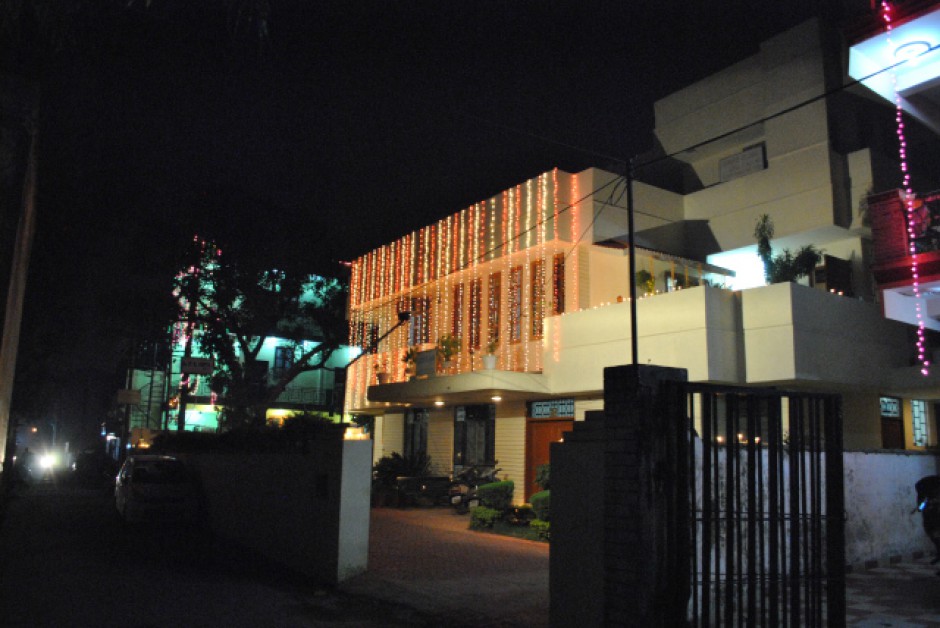T V Jayan New Delhi | Updated on April 11, 2020 Published on April 11, 2020
0


KNOW MORE





The findings may eventually help develop therapeutics against the deadly infection that has killed more than 1 lakh people so far
A team of researchers from India and the US led by a scientist at Chennai-headquartered private genome research foundation has found why some individuals are more susceptible to COVID-19 infection than others.
Researchers from MedGenome Inc and SciGenom Research Foundation (SGRF) jointly anlaysed DNA sequence and variation data from over 300,000 individuals from around 400 different populations to predict susceptibility to the COVID-19 disease caused by the SARS-CoV-2 virus.


Ads by
Stop seeing this ad
Why this ad?
Ads by
Stop seeing this ad
Why this ad?
Not interested in this ad
Ad covered content
Seen this ad multiple times
Already bought this
We’ll try not to show that ad again
We’ll try not to show that ad again
Ad closed by
Ad closed by
The team led by Sekhar Seshagiri, President of Chennai-based SGRF India, identified variations in the Angiotensin-converting enzyme 2 (ACE-2) protein gene that are predicted to make individuals more susceptible to the virus. Their findings are published online on the Biorxiv.org portal. However, the study is yet to be peer-reviewed.
The study found that individua;s carrying certain variants of the ACE2 gene would be protected against the COVID-19 infection, which has symptoms include fever, chills, cough, diarrhoea and pneumonia. While some infected individuals are asymptomatic, about 10 per cent need hospitalisation and approximately 1 to 5 per cent of the cases are fatal.
Understanding why some individual are more severely affected than others by the virus is important for managing at risk individuals. In the current study, the team attempted to understand how genetic factors affect susceptibility to the virus.
SARS-CoV-2 enters human cells by binding to ACE2, a cell surface protein that functions like a door to the cells for the virus. ACE2, an enzyme created by the ACE2 protein, usually plays a role in the maintenance of blood pressure but is tricked by the virus into becoming an entrance. One of the reasons the SARS-CoV-2 virus is highly infectious is because it can bind to the ACE2 cell receptor with higher affinity compared to the previous SARS-CoV virus which caused the disease called SARS which was less contagious, even though it caused an epidemic in 2003. Scientists in fact found that the spike protein which helps SARS-CoV-2 to bind to ACE2 has acquired mutations that increased its affinity to human ACE2 by nearly 10-15-fold as compared to SARS-CoV S-protein, making it highly infectious.
Natural human ACE2 protein variation encoded in an individual’s DNA can allow the virus to bind to ACE2 either strongly or weakly and hence alter their susceptibility to the disease which has caused the current pandemic.
“We analysed ACE2 protein altering variants from over 300,000 individuals variant data from across the world and have found variants that are predicted to bind to the virus less tightly and hence make individuals less susceptible – giving these individuals natural protection against the invading virus,” said Seshagiri, lead study author. “The converse is also true; in this data set, we found ACE2 variants that will render individuals more susceptible to the virus” said Eric Stawiski, Vice President Bioinformatics at MedGenome in the US.
The variants in ACE2 identified are not common, but this work sets the stage for larger studies that can focus on understanding the role and impact of these variants in patients. by studying variations in clinical outcomes and data in patients with the different genetic variants identified. The team is continuing to conduct more research to build on these findings to help fight COVID-19 and is also supporting pharma and biotech companies help find solutions for COVID-19.


Ads by
Stop seeing this adWhy this ad?
Ads by
Stop seeing this adWhy this ad?
Not interested in this ad
Seen this ad multiple times
Ad covered content
Ad was inappropriate
We’ll try not to show that ad again
We’ll try not to show that ad again
Ad closed by
Ad closed by
Published on April 11, 2020











